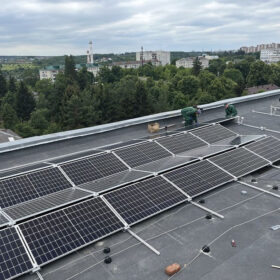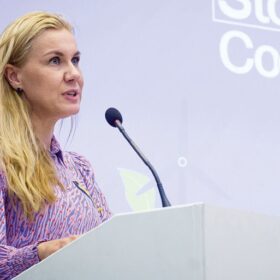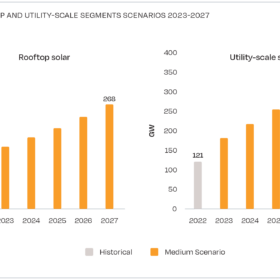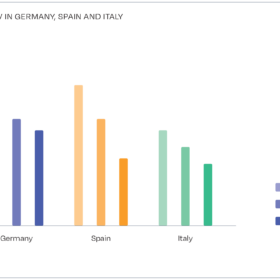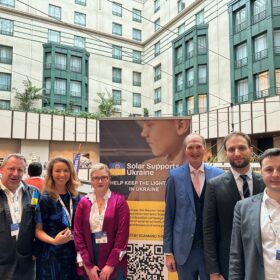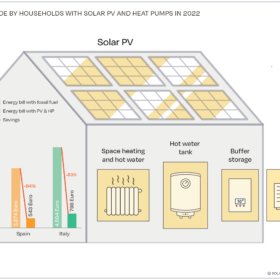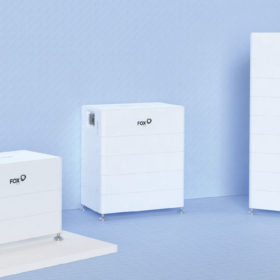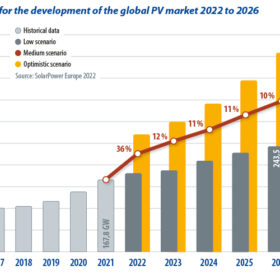Solar energy in the real world – EUPVSEC 2023
Practical matters, beyond simply improving on solar cell efficiency, have led the agenda at the European Photovoltaic Solar Energy Conference (EUPVSEC) going on this week in Lisbon. Policy and the geopolitics of solar manufacturing is the big question on everybody’s lips as the event passes its halfway point today. Concerns including grid integration, critical materials consumption, and public acceptance are all being aired frequently – illustrating a closer than ever link between work being done in the labs at solar energy institutes and the everyday lives and energy consumption of people in Europe and around the world.
Weekend Read: ‘Please open your wallets’
Donations of cash and solar equipment have thrown a lifeline to schools, hospitals, and communities in Ukraine but the country needs much more, including long-term backing for the recovery of its industry, reports Ian Skarytovsky.
Europe can’t waste a single ray of sun
As the solar wave sweeps across Europe, creaking grids are emphasizing the continent’s overriding need for energy storage.
Global rooftop PV additions soar by 50% to 118 GW in 2022
The world installed 239 GW of new solar capacity in 2022, according to SolarPower Europe. The rooftop PV segment accounted for 49.5% of additions – the highest share in the past three years. The rooftop sectors in Brazil, Italy, and Spain grew by 193%, 127%, and 105%, respectively.
PV payback times hit average of 20 years in 2022, says SolarPower Europe
High interest rates and hefty capex drove up the average payback time for solar in Germany, Spain and Italy to around 20 years in 2022, according to a new report by SolarPower Europe (SPE) and Energy Brainpool. pv magazine recently spoke with SPE Market Analyst Christophe Lits to crunch the numbers.
European Union set to raise renewables target to 42.5%
The European Parliament and the Council have reached a provisional agreement to raise the EU’s binding renewable energy target for 2030 to a minimum of 42.5% of the overall energy mix. The bodies also agreed on a further 2.5% indicative target, which would set Europe on a path to at least 45% renewables within this decade.
Europe’s solar industry launches donation program to repower Ukraine
Solar industries bodies including SolarPower Europe, Germany’s BSW and Ukraine’s ASEU have joined forces to send a stream of modules, inverters and batteries to embattled Ukraine. The donations are critical as some hospitals have been without power for weeks, leaving surgeons to operate under headlamps.
Study shows symbiotic effect of heat pumps and residential solar
SolarPower Europe says in a new report that households in Germany, Spain, and Italy can more than triple their savings by pairing PV with heat pumps. It said this combination helped families to save between 62% and 84% on their annual energy bills in 2022.
Weekend Read: Dawn of the store-age
Last year was another landmark 12 months for energy storage, with all indicators pointing to a massive surge in demand. Supply chain instability and inflation saw battery prices rise but the industry demonstrated an ability to swiftly react to geopolitical developments. We look at five trends driving the market.
From 300 GW to 3,000 GW per year – a utopia?
The photovoltaic industry is expected to achieve annual global expansion of 300 GW as early as this year. That sounds like a lot, but is it enough? In view of climate change and rising energy demand, it is time for a new vision.

